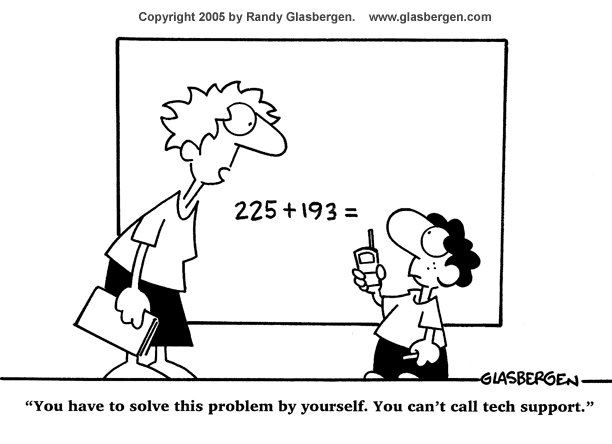How to Get Smart in Math

It is said that when King Ptolemy asked for an easier way of learning mathematics, Euclid (the inventor of geometry as we know it) replied, “There is no royal road to geometry.” For many people, math isn’t a strong suit. If you struggle with it, read on to learn how you can improve your understanding and excel in the subject. Steps
- Enroll in a math class.
- Pay attention in class. You’re not going to get any better at math if you don’t listen or if you don’t know what’s going on. Listen and pay attention to what the teacher is saying.
- Pay particular attention to the rules, properties, formulas, equations, and methods, if you are to that point in math. Those are the tools of math, and will make math and computation much easier for you. So learn to rely on them like a good carpenter would his saw, tape measure, hammer, etc.
- Participate. Even if you don’t know the answer to a question, you can surely make an educated guess. So what if you’re wrong? At least you tried. And hey, you just may be right!
- Ask many questions. Even Einstein asked questions, so why shouldn’t you? If you don’t understand something, ask the teacher. You’re not going to suddenly understand it by staring at the problem. If you don’t want to ask a teacher, ask a nearby student, or friend.
- Seek math help. If you still need help, ask the teacher if there is somewhere you can go for assistance. Find out if there is a study hall or tutoring program, or ask if a teacher could give you extra help before or after class.
- Memorize your multiplication tables. This is crucial for mastering arithmetic.
- Write out your work. For example, when working out equations, divide your solution into steps, writing down what you did you get to the next step.
- Writing out your work helps you to keep track of the work as you do it, and it may help you get partial credit if you make a mistake somewhere.
- Writing your steps out will show you where you went wrong
- Attempt ALL the work that is given to you. After attempting a few examples, you will get the hang of it!
- Review your graded homework assignments when they are returned to you. Try to figure out where you went wrong. Ask your teacher to help you review any problems you still don’t understand.
Tips
- Make sure you do your homework. You could even write out your own problems to practice.
- Try to understand what you are doing. Don’t just “plug and chug”. For example, if you are learning to add larger numbers, think about why you are carrying the excess over to the next place, and if you still don’t understand, ask.
- As you move beyond arithmetic in your study of mathematics, into algebra, geometry, and so on, the new things you learn will start to build upon the things you have already learned. Thus, make certain that you have a firm grasp of each lesson before moving on.
- Even if math is challenging for you, try not to fear it. Nervousness will just make matters worse. Instead, be patient with yourself and take the time to learn step by step.
- Have fun. Even though it may not seem like it yet, mathematics can be remarkably beautiful for its order and elegance.
- Don’t sit out just because you’re afraid of making mistakes. Try something, even if you’re not quite sure yet.
- Whether we like it or not, the ability to make quick and accurate arithmetic calculations plays an integral role in both our business and personal lives. Interestingly, arithmetic stimulates brain activity in both the left and right hemispheres of the frontal lobes more than does reading or listening to music. Insofar as the frontal lobes control our motor function, problem solving, memory, language, judgment, impulse control, and social/sexual behavior, appropriate frontal lobe stimulation may have far-ranging beneficial effect on our daily activities
source: wikihow








